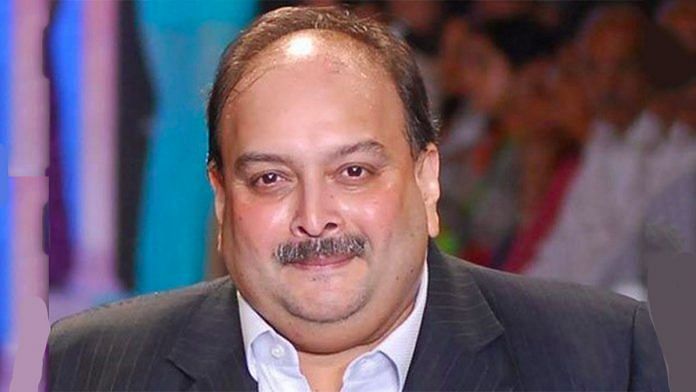New Delhi: Online streaming service provider Netflix has opposed fugitive diamond merchant Mehul Choksi’s plea seeking preview of the forthcoming series — Bad Boy Billionaires: India.
In its response filed on 21 September in the Delhi High Court, Netflix submitted that pre-publication censorship is “entirely impermissible”.
Netflix refuted Choksi’s claims of fundamental right to trial being affected by the documentary, submitting that he has “admittedly forsaken his citizenship in order to defeat the jurisdiction of Indian courts,” and is an “absconder”.
The online entertainment service provider also told the court that the episode on Choksi would not cause him any prejudice before any authority. It has highlighted Choksi’s “subterfuge”, pointing out that the affidavit filed by him in his appeal is neither attested nor apostilled, and that his address mentioned in the petition is that of an “entire township”.
“This has been done in order to ensure that the Appellant continues to evade the process of law,” the response said.
Netflix also said that there is a “vast resource of publicly available information” against Choksi, and, therefore, any comment about him based on this vast resource “would amount to fair comment in public interest”.
Also read: Delhi HC seeks Centre, Netflix reply to Mehul Choksi’s plea on ‘Bad Boy Billionaires’
Choksi demanded pre-screening
Choksi had approached the high court in August alleging defamation, invasion of privacy and violation of his fundamental rights under Articles 21 and 14 of the Constitution. He had demanded a pre-screening of the documentary for the court and for him, and had also said that Netflix should not release the portion mentioning him while the cases against him remain pending.
A single judge bench of the high court had, however, rejected his petition on 28 August, granting him the liberty to file a civil suit in an appropriate court. But Choksi challenged this judgment before a division bench of the high court.
Meanwhile, the series, which was scheduled for release for 2 September, stands stayed by two lower courts — Bihar and Hyderabad — on separate pleas filed by Sahara Chairman Subrata Roy and B. Ramalinga Raju who feature in the series.
Also read: 4 ‘Bad Boy Billionaires’ & where to find them — What Netflix’s controversial show reveals
Choksi knew about the docuseries, claims Netflix
Responding to the petition, Netflix informed the court that Choksi had given an interview for the documentary to the producer, Minnow Films, in May 2019. But the interview did not make it to the final documentary.
Choksi, however, claimed that he came to know about the docuseries only when he saw the trailer for it on 24 August, and that’s when he approached the court.
Netflix has now tried to refute this submission, asserting that his interview shows that he was aware of the docuseries being made. This, it says, shows “suppression and delay” on his part.
“Any person who approaches the Court for grant of relief, equitable or otherwise, is under a solemn obligation to candidly disclose all the material/important facts which have bearing on the adjudication of the issue raised in the case and if such person is found guilty of concealment of material facts or making an attempt to pollute the pure stream of justice, the court not only has the right but a duty to deny relief to such person,” the response said.
Also read: Delhi HC asks Netflix if it can pre-screen ‘Bad Boy Billionaires’ for scam accused Mehul Choksi
Netflix objects to Choksi’s writ petition
Netflix has further taken objection to the fact that Choksi filed a writ petition in the high court to get relief.
To this end, it has pointed out that writ petitions for enforcement of fundamental rights can only be filed against public bodies and not against a private institution like Netflix.
Fundamental rights under Article 21, including the right of reputation, cannot be enforced against private individuals exercising a private function, it said.
Netflix has also asserted that in the absence of any provision for regulation of OTT platforms, Choksi should not be allowed to censor and regulate its freedom of speech through the high court’s extraordinary powers.
Also read: Indians enjoy Netflix at third cheapest rates across world, but with poor internet speed







It is natural for criminals to hide their crimes from being narrated to the masses.
It’s far more important in national interest that these criminals be named and shamed by foreign media, when the nation’s judiciary in particular protects them.